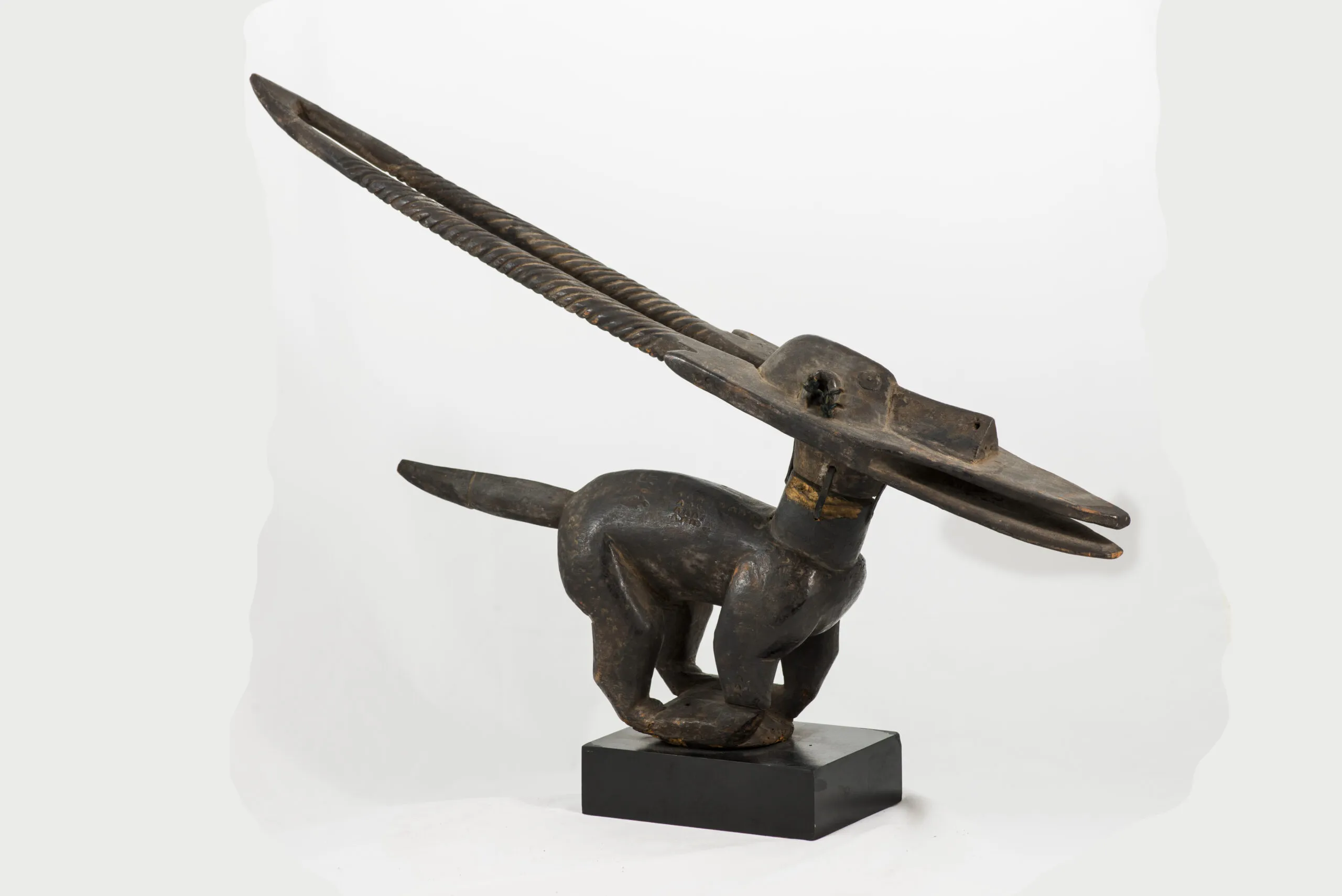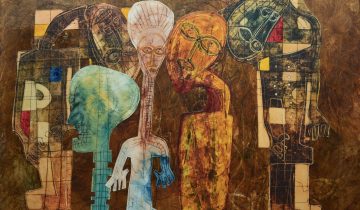Art and Healing: African Art’s Role in Mental Health Awareness
Seldom are the forces of culture and human nature so interconnected as when it comes to the art world. This World Mental Health Day, we turn our attention to the healing properties of African art and its role in promoting mental health awareness. The vibrant tapestry of African culture and history has long been a source of inspiration for many, with its distinct artistic styles and forms playing an essential role in shaping global artistic discourse. In this journal, we will delve into the vital connection between art and healing, examining the transformative power of African art in fostering understanding and resilience within communities, both locally and globally.
Traditional African Art and Healing
The connection between traditional African art and healing is as ancient as the continent’s diverse cultures. With forms and characteristics as varied as the peoples that created them, African art encompasses a wide range of disciplines, including sculpture, masks, textiles, and pottery.
One cannot appreciate traditional African art without considering its role in spiritual and psychological well-being. As both an avenue of expression and a medium for communication, traditional African art has long been a vital part of rituals, ceremonies, and the veneration of ancestors and spirits. The symbolism imbued in these artworks provides a unique insight into the collective beliefs and values that underpin the fabric of African society.
For example, the Ngbaka people of the Democratic Republic of Congo create intricate masks representing powerful spirits, which are worn during ceremonies to ensure community welfare and protection. Similarly, the Bamana people of Mali produce Chiwara sculptures, which symbolize the mythical being that taught agriculture to humans. These sculptures are used in rituals to ensure a fruitful harvest and maintain the delicate balance between humans and the natural world.
The role of traditional African art in fostering community cohesion and support is paramount. Through storytelling, art serves as a conduit for preserving knowledge, traditions, and values across generations. It also facilitates social bonding and a shared sense of identity, enabling communities to come together in times of adversity and upheaval.
Contemporary African Art and Mental Health Awareness
In recent years, contemporary African art has emerged as a powerful force in raising mental health awareness. A new generation of African artists is breaking ground with innovative themes and styles that speak to the challenges and triumphs of modern African life. This resurgence of creativity has sparked a dialogue around mental health, as artists explore themes of identity, belonging, and resilience.
One such artist is South African visual artist and photographer, Zanele Muholi, whose work seeks to challenge and break down stigmas surrounding mental health in the LGBTQ+ community. Through powerful photographic portraits, Muholi creates a safe space for expression and dialogue, giving visibility to marginalized groups and shedding light on their unique experiences and struggles.
Another compelling example is Nigerian artist, Victor Ehikhamenor, whose work merges traditional motifs with modern styles to create visually stunning pieces that address contemporary issues. Through his art, Ehikhamenor encourages viewers to confront the mental and emotional scars left by colonialism and explore the healing potential of reimagining African history and identity.
Community-based art initiatives have also played a crucial role in promoting mental health awareness. Art workshops, therapy programs, and collaborative projects have brought individuals together to share their stories, express their emotions, and find solace through the creative process. Public installations and exhibitions, such as the “African Mental Health Matters” exhibit in Lagos, Nigeria, have provided platforms for showcasing the therapeutic power of art and encouraging discussions around mental health.
Global Impact of African Art in Mental Health Awareness
As African art garners increasing recognition on the international stage, its impact on mental health awareness has transcended borders. Cross-cultural exchanges have allowed artists and viewers alike to find solace and inspiration in the shared experiences and challenges faced by individuals worldwide. These exchanges have fostered a sense of global unity in the fight for mental health awareness and the pursuit of healing through artistic expression.
African art has also played a vital role in global mental health initiatives. Art therapy programs have been implemented in refugee camps throughout Africa, providing a sense of stability and hope to individuals displaced by conflict and violence. Collaborative projects with global organizations, such as the World Health Organization and UNICEF, have utilized African art to raise awareness and educate communities about mental health issues.
An excellent case study in the power of African art to provide healing on a global scale is the Artolution initiative. Founded by artists Joel Bergner and Max Frieder, Artolution seeks to empower communities worldwide through participatory public art projects. In partnership with the Kakuma Refugee Camp in Kenya, Artolution has used art as a means to build resilience, foster social cohesion, and promote mental well-being among the camp’s diverse population.
The growing representation of African art in mental health discourse has also paved the way for inclusivity and a more diverse range of perspectives. By highlighting the unique challenges faced by African communities, this increased representation has empowered individuals to advocate for culturally sensitive mental health services and policies. Through their art, African artists have been able to give voice to the often-underrepresented experiences of their communities, contributing to a more nuanced understanding of mental health on a global scale.
In this journal, we have explored the multifaceted role of African art in promoting mental health awareness and healing. From the rich traditions of African art that have long supported spiritual and psychological well-being, to the contemporary artists who are breaking new ground in addressing mental health issues, African art has proven to be a powerful force for change.
As we have seen, the global impact of African art extends far beyond the continent’s borders. Its influence on the international art scene has facilitated cross-cultural exchange and promoted understanding, while its involvement in global mental health initiatives has provided much-needed support to vulnerable communities worldwide.
As we celebrate World Mental Health Day, let us remember the importance of African art as a tool for mental health awareness and healing. By supporting African artists and their work, we contribute to a more inclusive and empathetic global community, one that recognizes the transformative power of art in fostering understanding, resilience, and hope for a brighter future.
FAQs – Art and Healing: African Art’s Role in Mental Health Awareness
Q: What is the theme for World Mental Health Day 2023?
A: The theme for World Mental Health Day 2023 is celebrating the power of community kindness. The World Federation for Mental Health usually announces the theme closer to the event.
Q: What day is World Mental Health Awareness Day?
A: World Mental Health Day is observed annually on October 10th. It aims to raise awareness of mental health issues around the world and mobilize efforts in support of mental health.
Q: Is there a global mental health month?
A: While there isn’t a specific global mental health month, Mental Health Awareness Month is observed in May in the United States. Other countries may have their own mental health awareness events or campaigns throughout the year.
Q: What is the theme color of World Mental Health Day? A: The color most commonly associated with World Mental Health Day is green, which symbolizes mental health awareness and support. Green ribbons are often used during events and campaigns to show solidarity with those affected by mental health issues.





 No products in the basket.
No products in the basket.